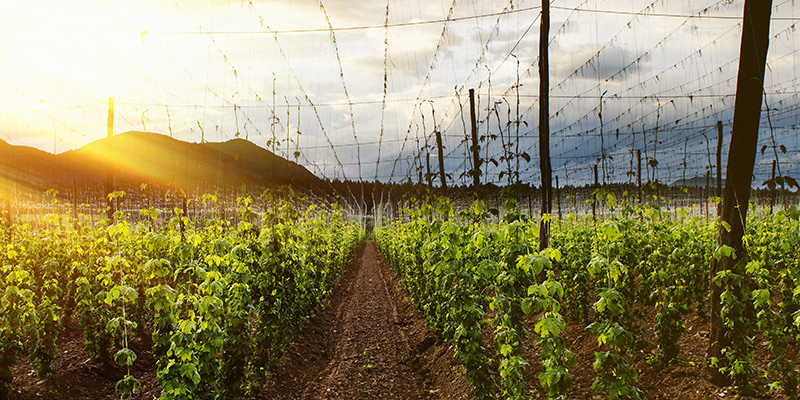When you’re buying wine or even spirits, there’s an implicit (marketable) sense of regionality: terroir, indigenous product, supportive local culture. But what about beer? Does “local”—or locality—matter?
Per the 1516 Reinheitsgebot, German beer purity law, beer is a mix of water, hops, and barley (they added yeast later), typically brewed in a sterilized environment (meaning no ambient microbes; wild fermentation is another story, where locality very much does matter). Assuming a brewer gathers the right ingredients to produce a particular beer, he or she could brew it anywhere.
But does that matter? That seems to be an increasingly important question. Witness the class action lawsuit against Anheuser-Busch InBev for hiding the fact that Beck’s—a “German pilsner”—is actually brewed in St. Louis. Americans especially seem to be sticklers for that regional stamp of authenticity: Guinness that’s shipped to Asia is brewed in Malaysia; Guinness that’s imported to the States is brewed in Ireland. As Tom Shellhammer, Professor of Fermentation Science at Oregon State, told The Wall Street Journal, it’s a preoccupation with “provenance.”
Which is to say, the intangible, and increasing, value of identity, hyper-local production, which has become the prime capital of food and drink brands all over the country. It gets even more complex in the world of craft beer, where production jumped 18% in 2014 alone. The requirements for craft beer are muddled, but “local” seems to be gently suggested (and, like any grassroots concept, celebrated on T-shirts). Yet the question remains, does local matter in beer?
Yes and no, or at least those seem to be the conclusions so far. There’s some evidence that place impacts the quality and character of hops, water, even grain. In 1991, monks who produced Chimay Blanche in one abbey in southern Belgium ran out of production space, so they sent their supplies to another abbey in Holland. Rather than rely on Chimay’s fully-equipped ability to chemically reproduce the water around the Abbaye Notre-Dame de Scourmount, they shipped the water itself.
And then there’s the hard water in Burton-on-Trent, so famous there’s actually a process called “burtonizing,” an effort to recreate that water around the world by manipulating the ions in a brewery’s water supply (the result is good bitterness, as found in an English IPA).
Hops as well are thoroughly known to thrive (or not) from region to region, but the differences may come down to a matter of miles. A study done during the 2010 hop harvest in the Willamette Valley found that Cascade hops grown on farms just miles apart had different oil concentrations (essential oils are central to imparting hop flavor). No surprise in the (delightfully) overcrowded craft market, there are recent pushes to produce beers with 100% local hops, another way to stand out from the crowd. Breweries like Rogue are going so far as to create an entirely local, farm-produced line, complete with a manifesto on what they call “dirtoir.”
Beyond the scientifically measured oil or ion contents at play, there is some romance to locality in beer. As Spoetzl Brewery brewmaster Jimmy Mauric told Draft Magazine, there’s a reason they brew in Shiner, Texas. “You can duplicate the water chemically, but it’s like a seasoned pot: Most people have a favorite frying pan that just makes everything taste better.”
Despite the romance, it’s incredibly hard to make an entirely “local” beer, not just because many ingredients in beer production—from oak barrels to isinglass (fish bladder used for clarification)—don’t come locally. If a craft brewery is even a bit successful, it almost immediately encounters the finicky problem of growth (a conundrum for “craft” breweries in several ways, just ask Sam Adams). In 2012, Cigar City Brewing Co. outgrew its ability to meet its demand, outsourcing some of that production to facilities like Brew Hub, a massive contract brewery outfit with locations in Florida and St. Louis. The practice of so-called “contract brewing” seems to negate claims of local—and stirs up plenty of controversy in the beer world—but in a sense it’s the only way many of the smallest outfits in a given region can actually continue to produce.
Do we really ask the little guys to die an honorable, local death or live to slake our thirst another day? That’s a question we can’t quite answer for you. It depends on what matters most to you when you take a sip.

